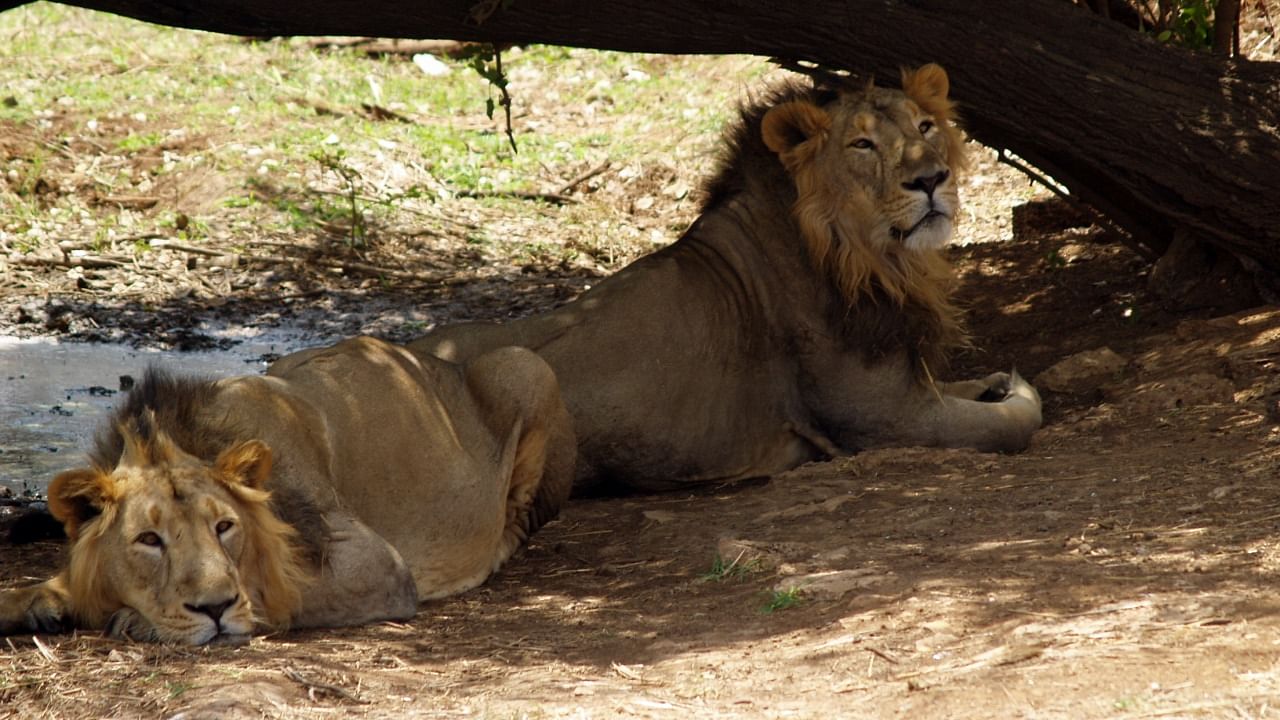
In the first such confirmed case of animal infection in India, eight Asiatic lions housed in the Nehru Zoological Park in Hyderabad were found to have contracted Covid-19.
At a time when the nation is reeling under the massive surge in coronavirus cases, experts said that detection of the SARS-CoV-2 spread in animals is “an emerging requirement for managing the pandemic in the country.”
The zoo lions were showing respiratory distress following which their nasal and oral discharge samples were collected after anesthesia administration on 24 April. RT-PCR tests at the Laboratory for Conservation of Endangered Species at CSIR-Centre for Cellular and Molecular Biology (LaCONES-CCMB) in Hyderabad confirmed them as positive for coronavirus.
“As far as we know, this is the first case of any zoo, domestic or wild animal in the country confirmed as infected with Covid-19,” Dr Rakesh Mishra, advisor, CCMB told DH.
LaCONES-CCMB is one of the four designated Covid-19 testing centres for captive animals in India.
CCMB's genome analysis showed that the virus that infected the lions “is not a variant of concern.”
Telangana zoo officials said the lions are responding well to the treatment, eating well, behaving normally and are recovering.
“The lions were isolated from other animals, and are receiving due care. Our assumption is that the lions have caught the virus from some asymptomatic enclosure keeper(s). None of the staff in that section had tested positive,” Dr S Kukrety, director of zoos, Telangana told DH.
“Four other lions there are fine. Since the lions' enclosure is secluded, the possibility of other animals getting infected is remote. As of now, we have not found Covid-19 symptoms in any other animal in the zoo,” the official said.
The zoo was closed for visitors from 2 May.
LaCONES-CCMB scientists emphasized the need “to strictly follow the safety regulations in the Indian zoos to avoid transmitting the infection to animals”.
“Since the pandemic began, many zoos and animal farms worldwide have reported about their animals getting infected with the virus from humans. We have to carefully document the different symptoms that coronavirus infection causes in animals as well as develop non-invasive ways to procure samples from animals. Getting swab samples from animals, understandably, is very difficult,” said Dr Karthikeyan Vasudevan, scientist-in-charge, LaCONES-CCMB.
Dr Mishra said that CCMB is exploring a method of testing captive and free-ranging animal samples for coronavirus, using their fecal samples.
“Detecting the coronavirus spread in animals opens up an unchartered area of work for CCMB. And it is an emerging requirement for managing the pandemic,” said Dr Virendra Tiwari, director-in-charge, CCMB.
Meanwhile, the Central Zoo Authority has issued advisories to the zoos with a set of precautions to be undertaken in the light of surging Covid-19 cases.
“Based on the experience with zoo animals with SARS-COV-2 infection elsewhere in the world, there is no factual evidence that animals can transmit the disease to humans,” the ministry of environment, forests and climate change said in a statement on Tuesday.